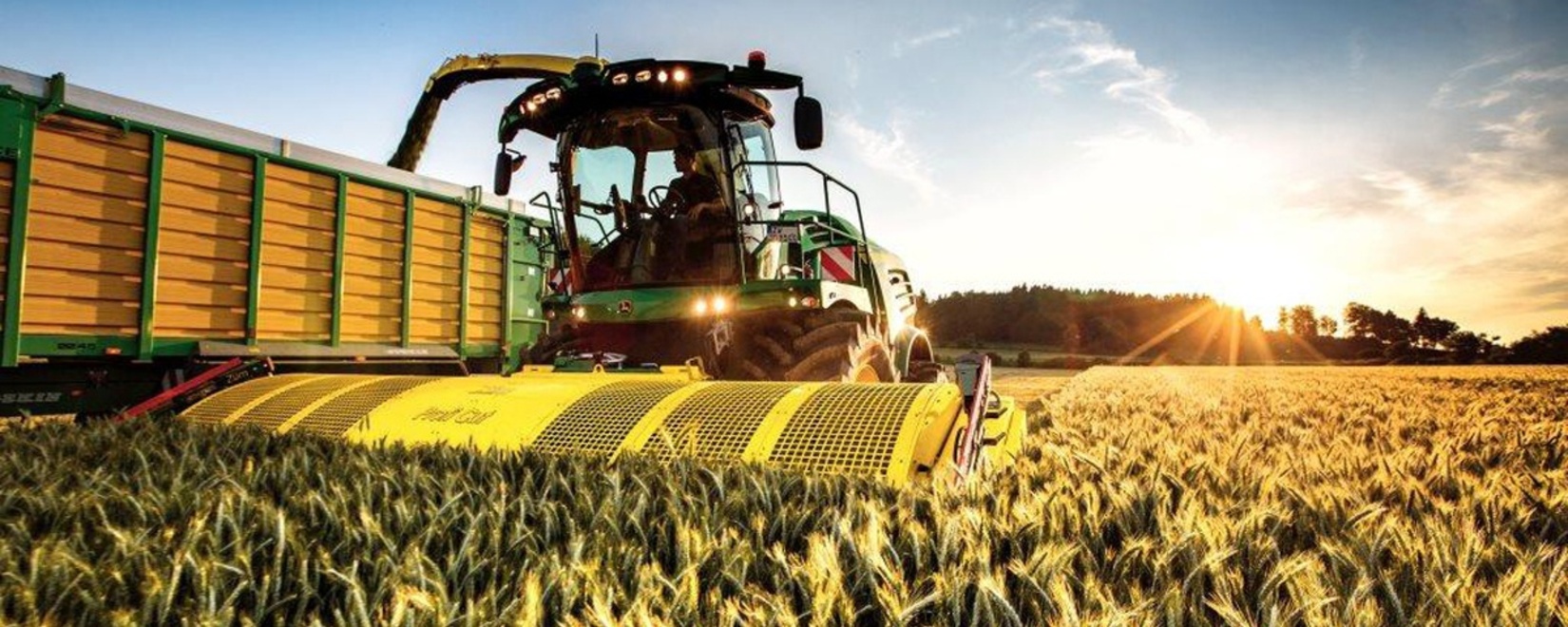The production of agricultural products in Russia has grown by 87% since 2000. Grain and meat production volumes have doubled, a significant increase in food production has been achieved, and fish catch has increased by 60%.
This has allowed Russia to ensure food self-sufficiency and increase exports by 30 times.
This was announced by the head of the Ministry of Agriculture, Dmitry Patrushev, at the solemn opening ceremony of the Agricultural Day within the framework of the National Achievements Forum (held at the "Russia" exhibition forum).
During the plenary session "Key Results and Achievements of Agriculture," the minister talked about the significant changes that have taken place in the industry over recent decades and the main tasks for the coming years.
In his speech, he noted that since the beginning of the century, the Russian agro-industrial complex, with the support of the president, has transformed from import dependence to self-sufficiency and later to a net exporter status.
Patrushev reminded that currently work is being carried out within the framework of four state programs aimed at the development of agriculture and regulation of the agro-industrial complex, fisheries complex, rural territories, as well as efficient land use for agricultural purposes and irrigation development.
In addition, the Ministry of Agriculture is a participant in two national projects: "International Cooperation and Export" and "Small and Medium-Sized Business and Support for Individual Entrepreneurial Initiative."
"Thanks to such a systematic approach to the industry development, stable government support, and the hard work of farmers, agricultural production in Russia has almost doubled since 2000.
Our country is among the world leaders in grain production and export. Other agricultural crops such as sunflower, rapeseed, soybeans, vegetables, sugar beets, and potatoes are also showing confident growth," the minister noted.
Speaking about the development of animal husbandry, he emphasized that as of 2000, self-sufficiency in meat and meat products was only 67%, with nearly 60% of meat coming from household farms.
Since then, the situation has changed, and meat production has doubled. As of 2022, Russia has achieved 100% self-sufficiency, with 85% of the volume coming from the organized industrial sector.
"Other sectors of the agro-industrial and fisheries complexes are also dynamically developing. As a result, today the key indicators of food security doctrine are either already met or we are steadily approaching the established benchmarks," added Patrushev.
According to him, the financing of industry-specific state programs is increasing annually. For example, the agricultural sector received 18 billion rubles in 2000, while in 2018, the total volume for the four programs amounted to 266 billion rubles, with 558 billion rubles planned for this year. Within the framework of the agro-industrial complex state program, a wide range of measures are envisaged, available to both large businesses and the SME sector.
This positively affects the volume of production and profitability of agricultural organizations. For example, the share of profitable companies was 47% in 2000, and today it is already 86%, according to the head of the Ministry of Agriculture. Among the key future tasks, he mentioned the development of breeding and genetics, as well as biotechnologies: the production of enzymes, vitamins, and amino acids.
The government's "Agrarian Science" initiative plans to establish at least three agro-biotechnoparks with their own specialization. Last year, the first project of this kind appeared in the Belgorod region, focusing on the production of enzymes for food and feed. Necessary steps are also being worked out for other biotech directions.
Overall, according to the Ministry of Agriculture's estimates, by 2030, this will allow Russia to fully meet its needs in several positions. As part of the Agricultural Day, the first All-Russian Farmer Forum was also held, during which Patrushev stated that today, farmers often go far beyond the notion of "small business" in terms of production volumes.
Only individual farms account for about 15-16% of the national food basket. Farmers and small agricultural organizations provide more than half of Russia's grain, a third of open-field vegetables, a quarter of potatoes, and 20% of fruit and berry production. They successfully fill the vacated niches, as evidenced by farm cheeses, niche dairy and confectionery products, fruits and berries, meat and fish delicacies, which are very popular.
Moreover, in terms of technological advancement, individual farms are not inferior to large productions, implementing modern equipment and advanced technologies. According to the minister, small and medium-sized businesses in the agro-industrial complex also contribute to improving rural life quality.
Overall, over the past four years, approximately 12 billion rubles from non-budget sources have been directed towards updating the infrastructure within the framework of the state program "Comprehensive Development of Rural Territories." The majority of this amount consists of investments from agricultural producers, primarily farmers.
"At present, there is a whole range of measures available only to the SME sector, such as grants or targeted subsidies. In 2024, about 14.5 billion rubles will be allocated for their financing. In general, almost half of the funds allocated to support agricultural production are provided to farmers," Patrushev reported.
Moreover, as part of the thematic day, at the stand of the Republic of Mordovia, the minister, together with the region's head Artem Zdunov, online launched a new plant for the production of pet food. The enterprise, worth 1.7 billion rubles, is equipped with the most modern equipment. Its construction began in December 2022, and once operating at full capacity, it will produce 50 thousand tons of products annually.

 Trading platform
Trading platform 
 Monitoring
Monitoring  Catalog
Catalog 
 Fork Work
Fork Work 
 Service
Service  News
News  Directory
Directory 
